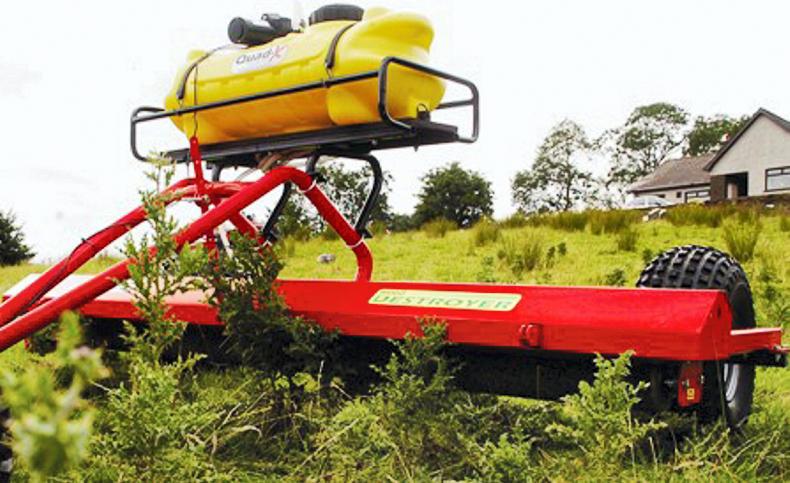Weed lickers will be subject to a Department of Agriculture inspection and test from 2020.
A recent European Commission audit on the implementation of the Sustainable Use of Pesticides Directive (SUD) found Ireland was not fully compliant with the EU requirement to have all pesticide application equipment inspected. To date, only boom sprayers with a span greater than 3m and orchard sprayers have been subject to mandatory testing under the SUD.
The weed licker test will be based on the International Organisation for Standardisations (ISO) test for agricultural sprayers.
It will ensure that the tank, pump, hoses, cleaning equipment and control devices are all functioning correctly.
The testing regime is expected to cover a number of areas, such as there are no leaks or drips from the machine, any moving or rotating parts are well guarded, locking mechanisms for foldable parts are functional and the cloth or fabric material is in good condition.
The test is to ensure that there is no over-application of chemicals and that maximum environmental and operator standards are adhered to.
The Department said the delay in the rollout of the test was in part due to the absence of an approved European standard for such machines. A protocol is now almost complete and testing will be required from 2020.
Read more
Top five tips to tackle rushes
Farmer Writes: life after MCPA
Pesticide caution for Cavan farmers
Weed lickers will be subject to a Department of Agriculture inspection and test from 2020.
A recent European Commission audit on the implementation of the Sustainable Use of Pesticides Directive (SUD) found Ireland was not fully compliant with the EU requirement to have all pesticide application equipment inspected. To date, only boom sprayers with a span greater than 3m and orchard sprayers have been subject to mandatory testing under the SUD.
The weed licker test will be based on the International Organisation for Standardisations (ISO) test for agricultural sprayers.
It will ensure that the tank, pump, hoses, cleaning equipment and control devices are all functioning correctly.
The testing regime is expected to cover a number of areas, such as there are no leaks or drips from the machine, any moving or rotating parts are well guarded, locking mechanisms for foldable parts are functional and the cloth or fabric material is in good condition.
The test is to ensure that there is no over-application of chemicals and that maximum environmental and operator standards are adhered to.
The Department said the delay in the rollout of the test was in part due to the absence of an approved European standard for such machines. A protocol is now almost complete and testing will be required from 2020.
Read more
Top five tips to tackle rushes
Farmer Writes: life after MCPA
Pesticide caution for Cavan farmers






 This is a subscriber-only article
This is a subscriber-only article










SHARING OPTIONS: